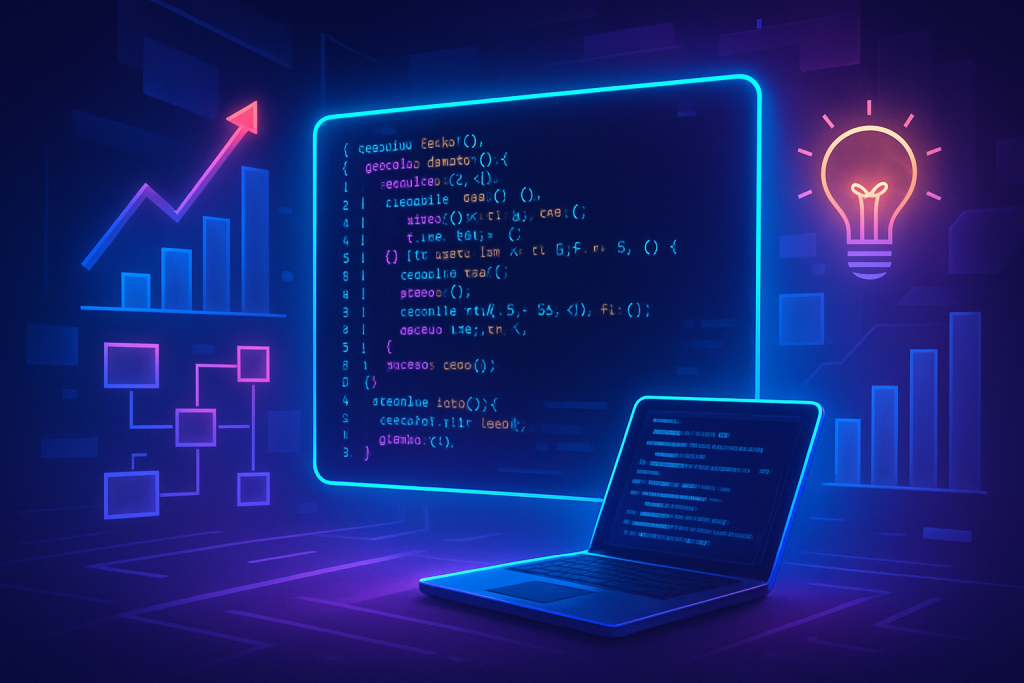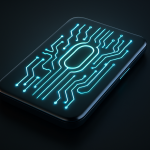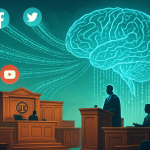The year is 2025. Flying cars? Still stuck in development hell, probably battling regulatory nightmares and the sheer terror of rush hour in three dimensions. But autonomous coding? That’s officially landed. Yesterday, Anthropic, the AI startup darling backed by Alphabet and Amazon, dropped a bombshell: Claude Opus 4, their latest AI model, can autonomously write code for almost seven hours. Let that sink in. Seven. Hours.
Remember those old sci-fi movies where the robots take over because they can do everything better than us? Well, maybe they’re not wrong about the “do everything better” part. At least when it comes to churning out lines of code. This isn’t just a minor upgrade; it’s a quantum leap. Their previous model, Claude 3.7 Sonnet, tapped out after a measly 45 minutes. That’s like going from a wind-up toy to a self-driving Tesla in one generation. The test case was a collaboration with Rakuten, suggesting that real-world applications are already being explored.
But why does this matter? Why should you, a discerning Just Buzz reader, care about a machine that can write code for the length of a moderately engaging superhero movie?
Because it’s about to change everything. Consider the implications. We’re talking about potentially automating significant chunks of the software development process. Imagine a world where bugs are squashed faster, features are deployed quicker, and the bottleneck of human coding is significantly reduced. Think of all the productivity gains, all the new applications that can be built, all the problems that can be solved.
And it’s not just about speed. Mike Krieger, Anthropic’s Chief Product Officer, rightly emphasized the importance of long-duration autonomy. It’s not enough for an AI to spit out a few lines of code; it needs to be able to sustain complex projects, understand dependencies, and adapt to changing requirements over extended periods. That’s where the real economic impact lies. Think of it like this: a human coder can work for eight hours a day, maybe more if they’re fueled by enough caffeine and existential dread. But Claude Opus 4 can potentially work around the clock, tirelessly building and refining code without needing a break or complaining about the office coffee.
Anthropic also unveiled Claude Sonnet 4, a more affordable and compact version of Opus. This is a crucial move. It’s like offering both a Ferrari and a reliable, fuel-efficient sedan. Opus is for the high-performance tasks, the complex projects that demand the absolute best. Sonnet is for the everyday coding needs, the tasks that need to be done efficiently and cost-effectively. This dual approach democratizes access to advanced AI coding capabilities, making it available to a wider range of companies and developers.
The Competitive Landscape: It’s a Code War
Of course, Anthropic isn’t operating in a vacuum. The AI race is heating up, and companies like Google are constantly pushing the boundaries of what’s possible. Every week, it seems like there’s a new announcement, a new breakthrough, a new model that promises to revolutionize the world. This competitive pressure is ultimately a good thing for consumers and businesses, driving innovation and forcing companies to constantly improve their offerings. It’s a bit like the console wars of the 90s, except instead of Sega versus Nintendo, it’s Anthropic versus Google versus everyone else, and the prize is the future of software development.
Claude Code: From Preview to Prime Time
The announcement also included the full release of Claude Code, a tool designed to assist software developers. This isn’t just about replacing human coders; it’s about augmenting their capabilities. Think of Claude Code as a super-powered co-pilot, helping developers write better code, faster, and more efficiently. This ties into the broader trend of AI-assisted tools that are designed to enhance human productivity, rather than simply replace it.
The Ethical Quandaries: Who’s Responsible When the Code Breaks?
But with great power comes great responsibility. As AI models become more autonomous, ethical questions inevitably arise. Who’s responsible when an AI-generated code has a bug that causes a major system failure? Is it the AI developer? The company that deployed the code? The AI itself? These are complex questions that need to be addressed as AI becomes more deeply integrated into our lives. We need to develop clear ethical guidelines and regulatory frameworks to ensure that AI is used responsibly and safely. It’s a bit like the early days of the internet, when everyone was figuring out the rules of the road. We need to learn from those experiences and create a more thoughtful and proactive approach to AI regulation.
And let’s not forget the potential impact on jobs. While AI-driven coding promises to create new opportunities, it also raises concerns about job displacement. Will human coders become obsolete? Probably not entirely. But the skills required to succeed in the software development industry will undoubtedly evolve. The coders of the future will need to be able to work alongside AI, understanding how to leverage its capabilities and manage its limitations. It’s a bit like the industrial revolution, when machines transformed the way we work. We need to invest in education and training to ensure that workers have the skills they need to thrive in this new era.
Ultimately, Anthropic’s Claude Opus 4 is a significant milestone in the evolution of AI. It’s a testament to the incredible progress that’s being made in the field, and it offers a glimpse into a future where AI plays an even more prominent role in our lives. Whether that future is a utopian dream or a dystopian nightmare remains to be seen. But one thing is certain: the code has been written, and the game has changed.
Discover more from Just Buzz
Subscribe to get the latest posts sent to your email.


